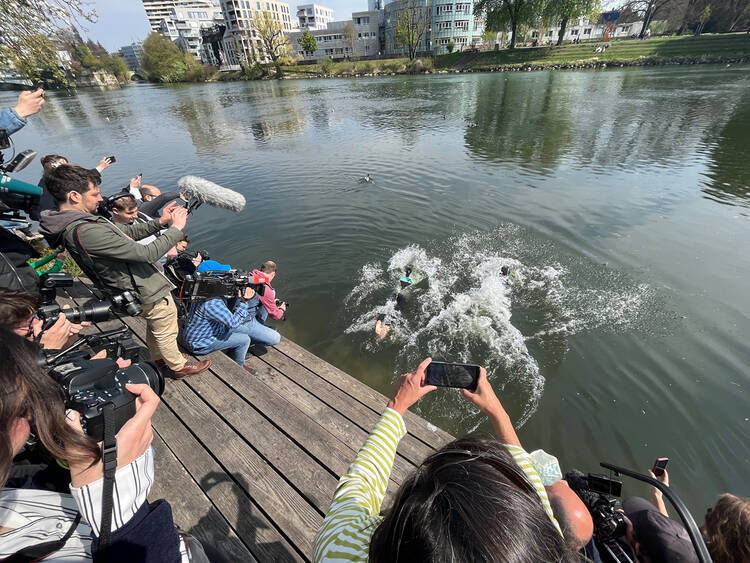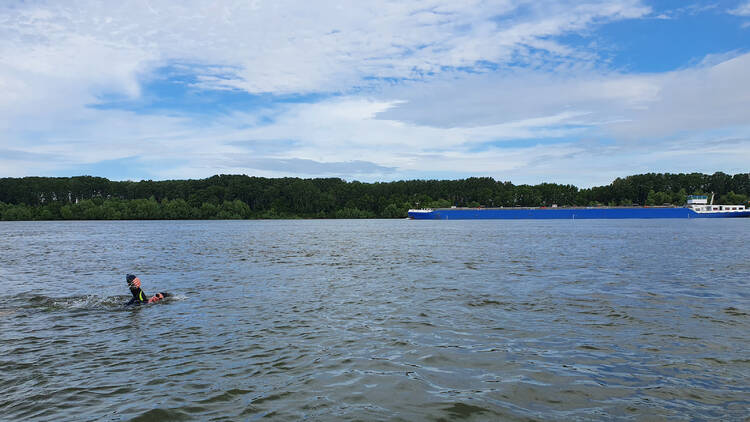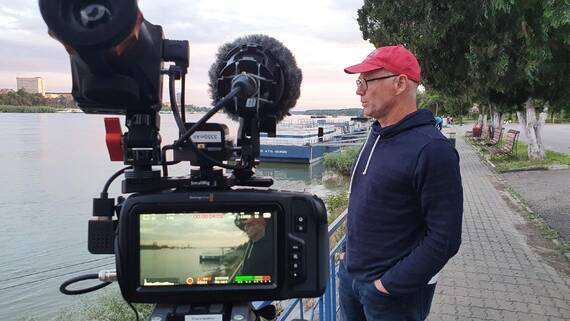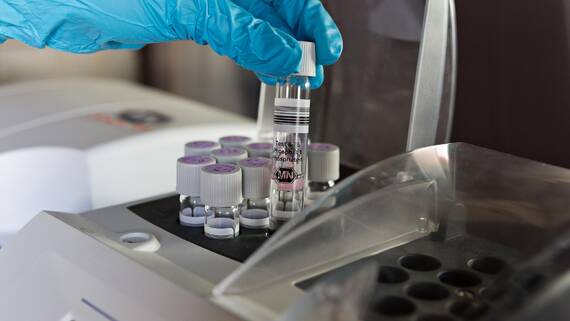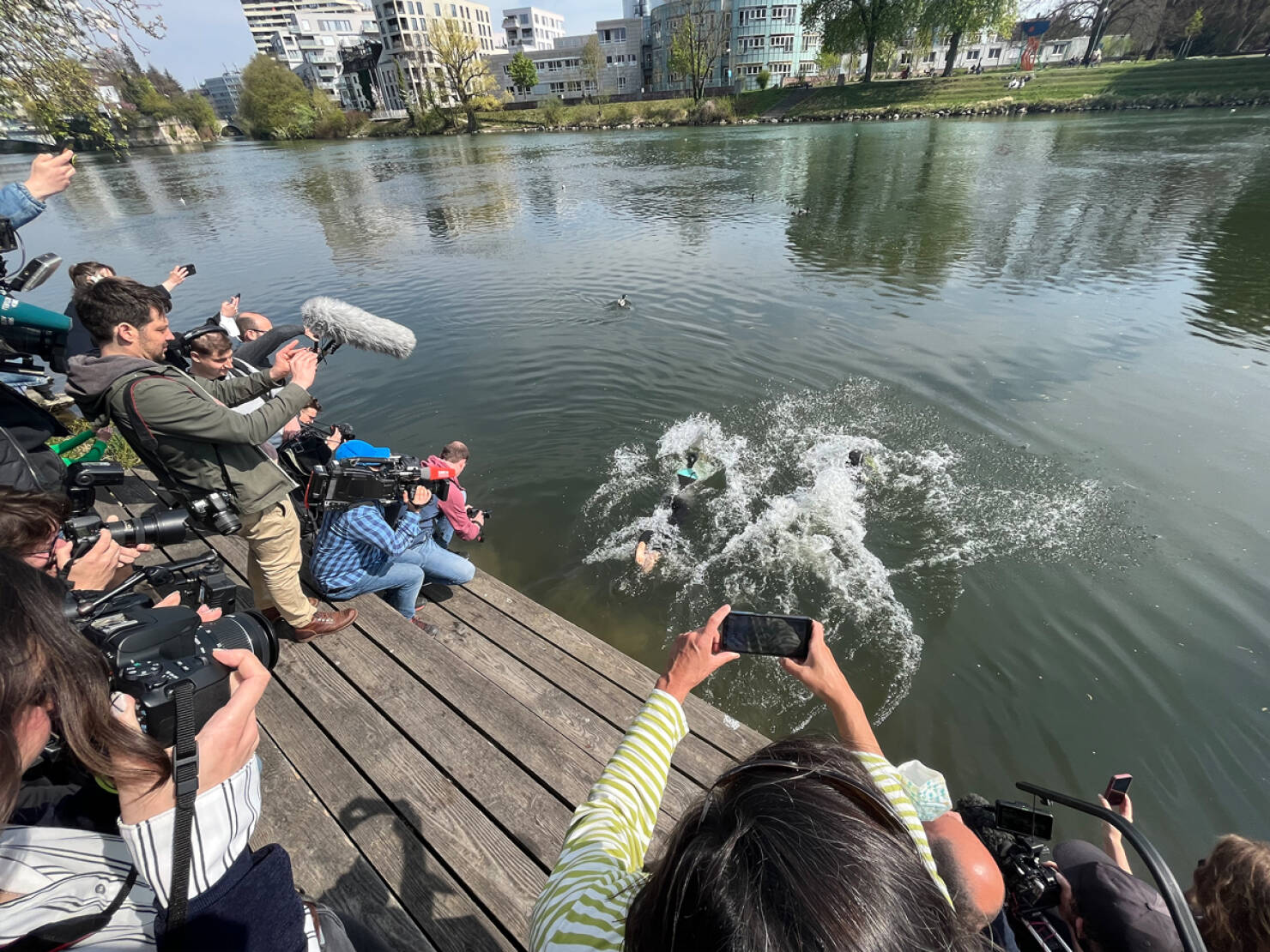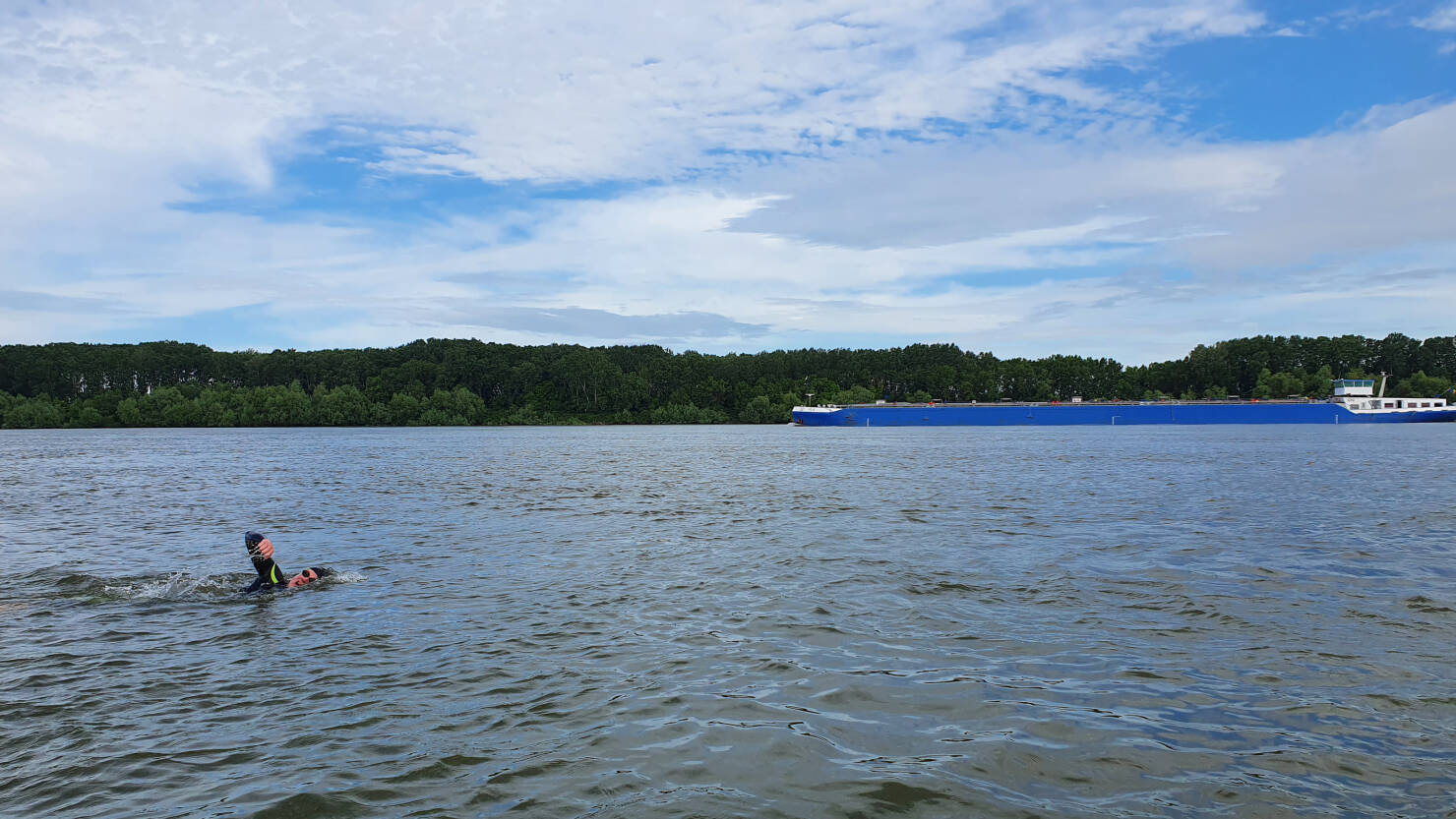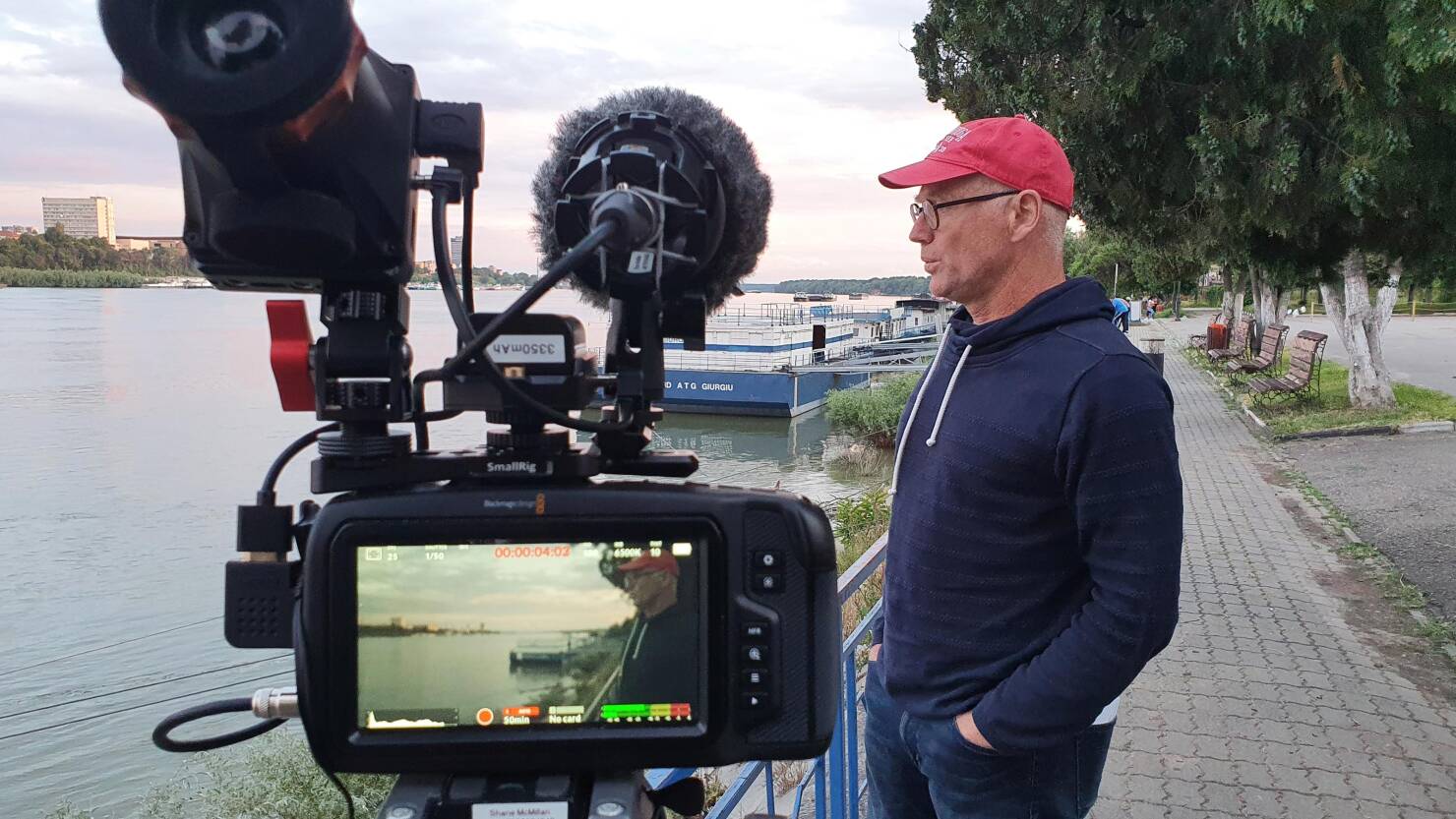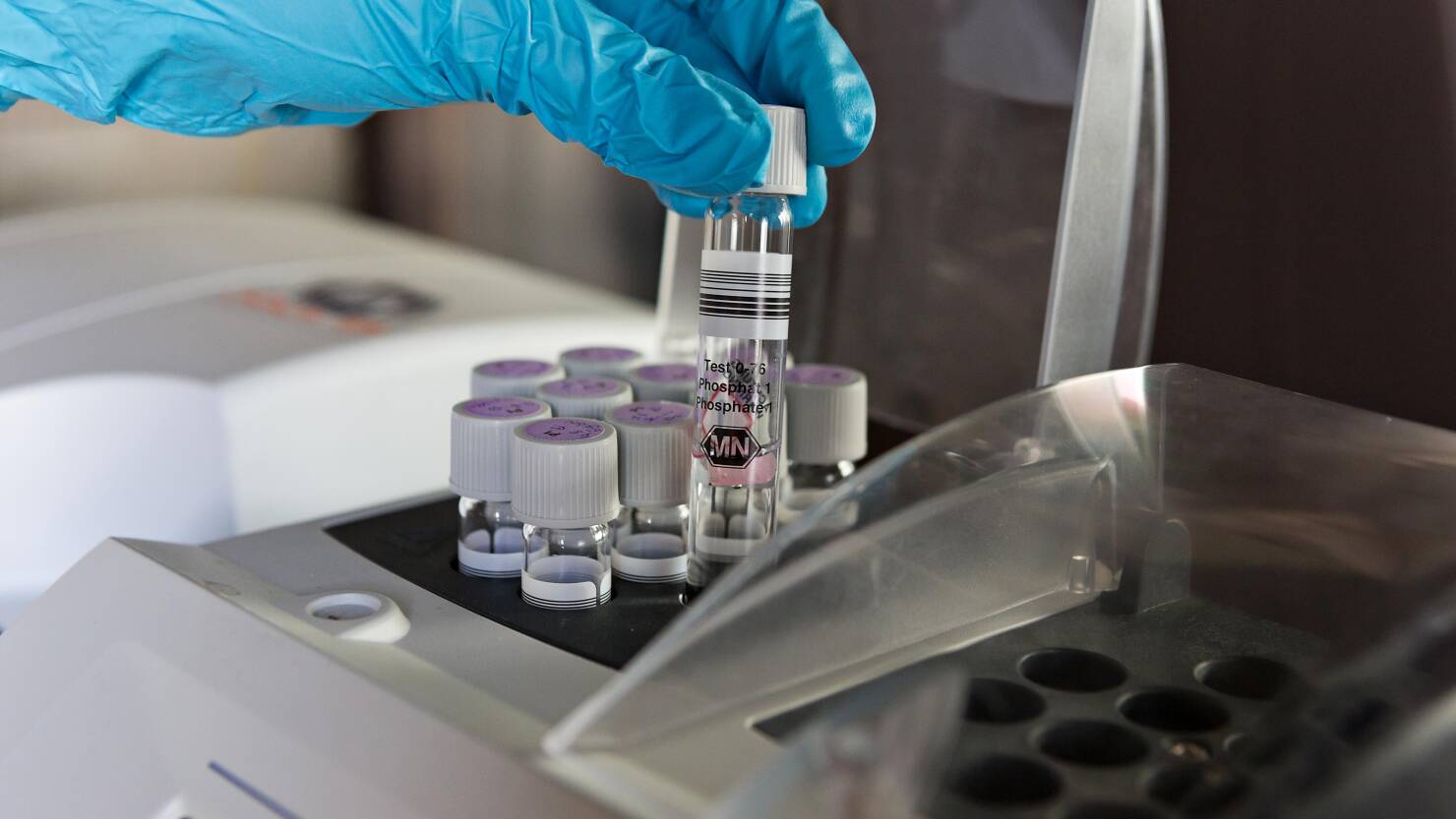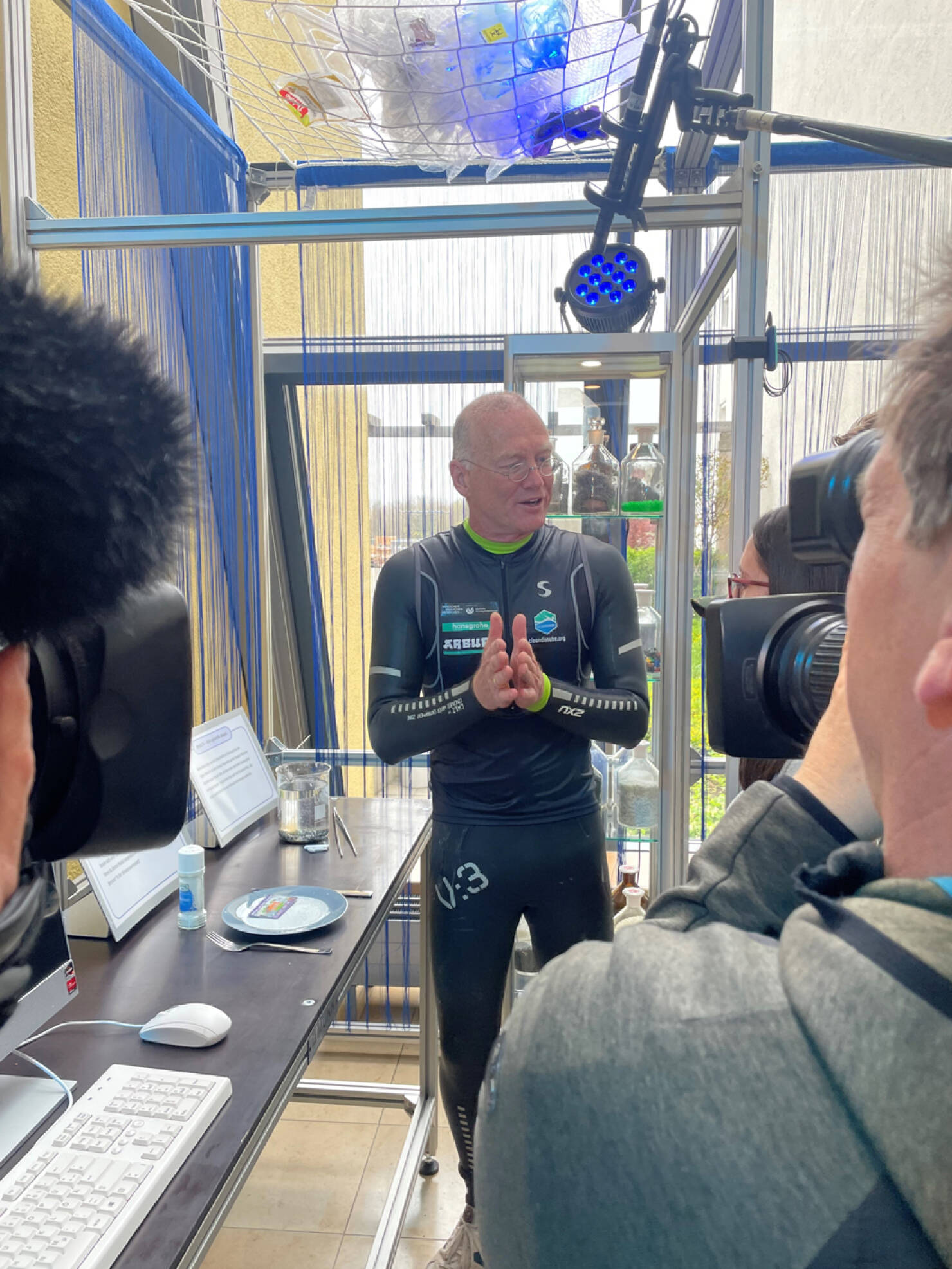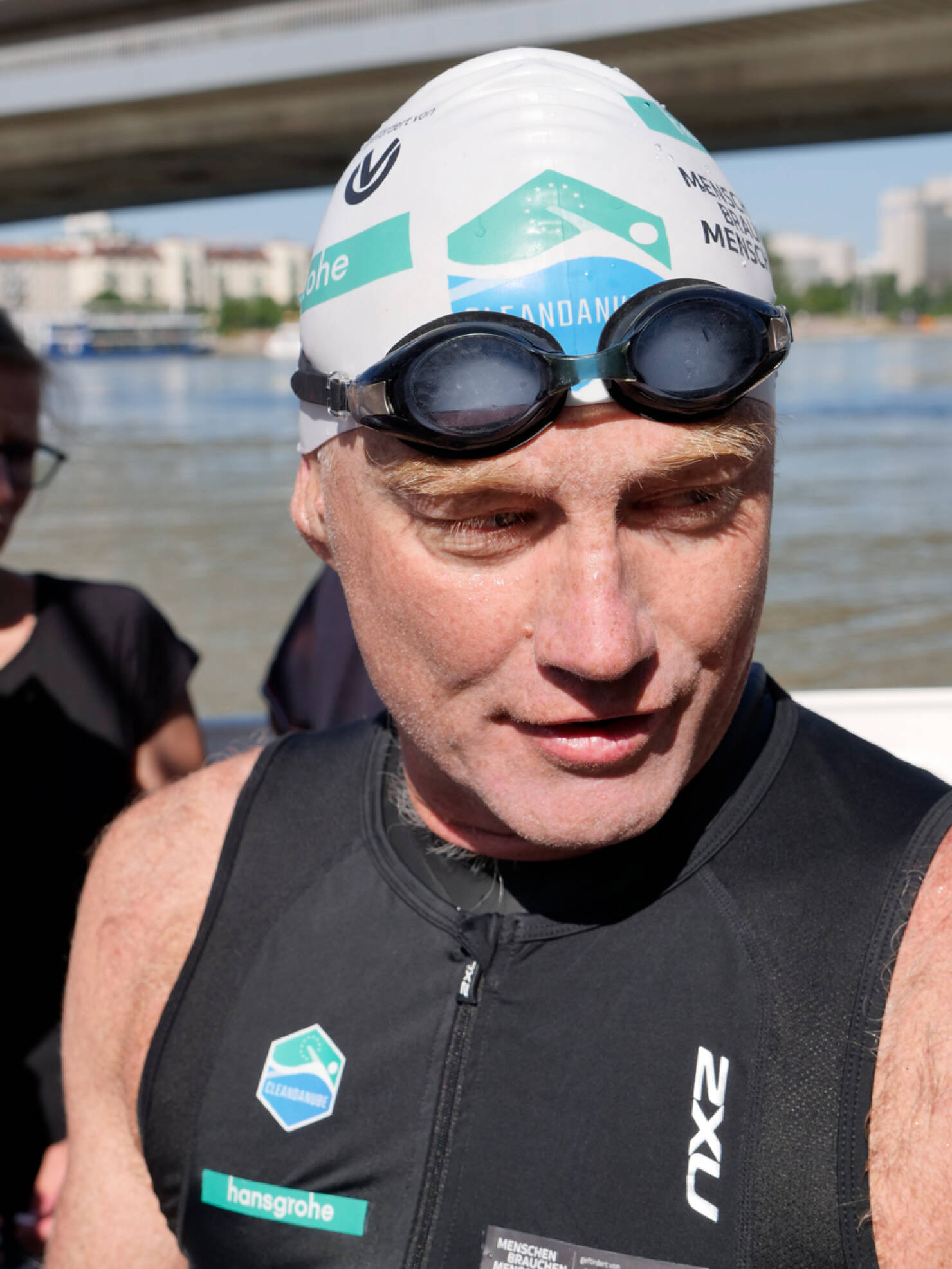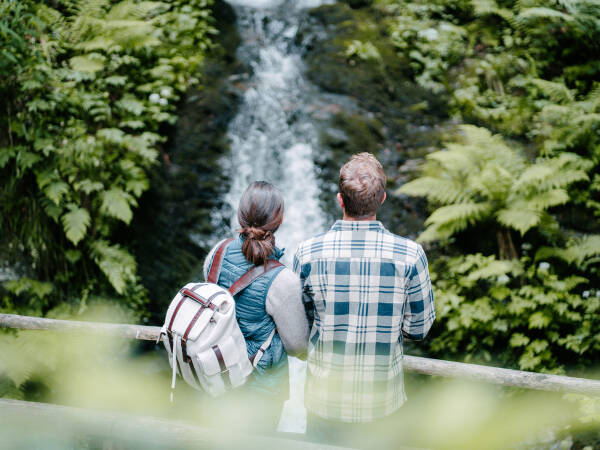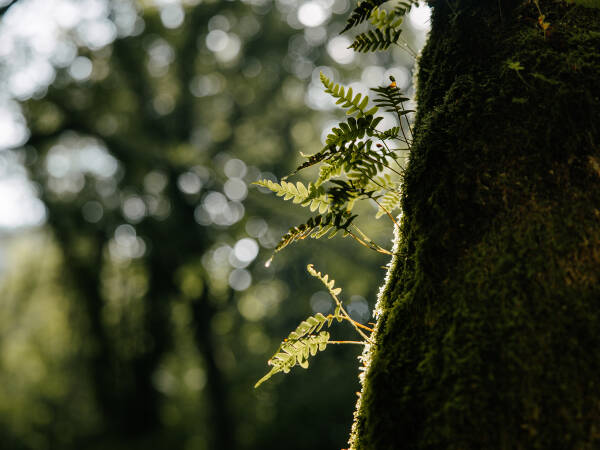He swims again. For a plastic-free Danube
Andreas Fath has made a name for himself as a "swimming professor" and already swum along the Rhine river from its source to its mouth. Now he wants to conquer Europe's largest river – over more than 2,700 kilometers. The Hansgrohe Group is sponsoring his spectacular cleandanube environmental campaign. Because we share a passion with him: water. Protecting this valuable resource and our ecosystems is an important concern for him, as it is for us at Hansgrohe. Learn more about the commitment of our water ambassador Andreas Fath.
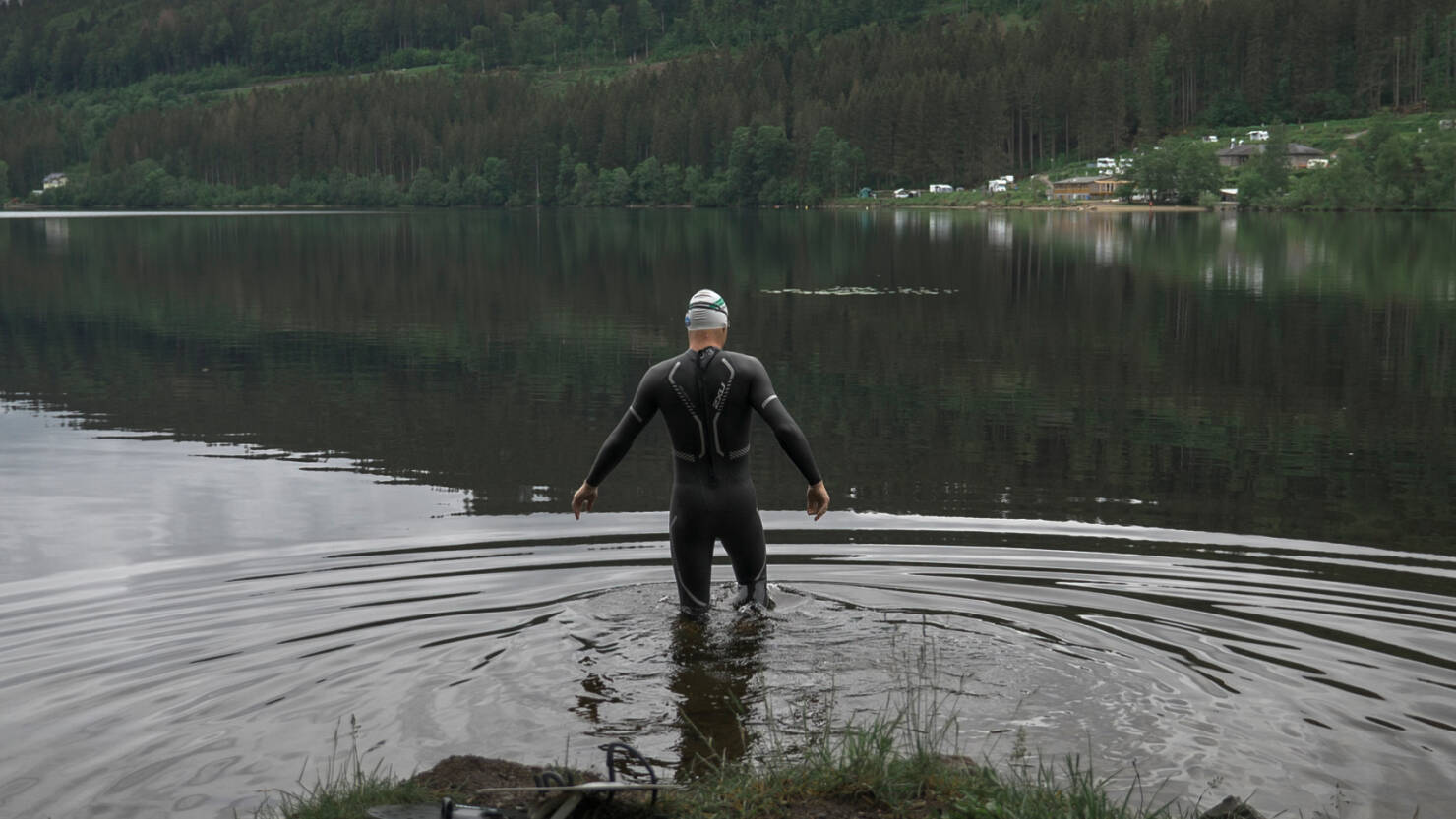
More plastic particles than fish larvae in the Danube
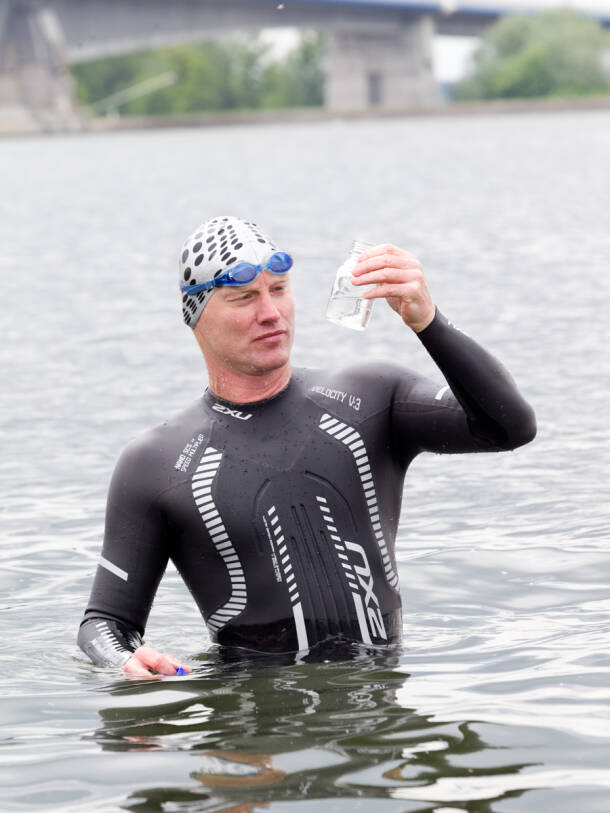
Mr. Fath, what was the main motivation for launching the cleandanube project?
Andreas Fath (A.F.): The Danube is the lifeline of Europe and has a unique biodiversity and most diverse river habitats. Over 4 tons of plastic washes down the Danube into the Black Sea – every day. Some Danube countries have neither functioning deposit systems nor effective waste prevention strategies. Plastic bottles, bags and other macro waste can be found in the river banks, as well as at the bottom of the riverbed.
Microplastics are a serious problem. Researchers have found more plastic particles in the Danube than fish larvae. In numerous places, it is not possible to swim in the Danube because the water is contaminated in a way that is hazardous to health. As a result, people lose the opportunity to experience the unique river landscape in its entirety.
It is alarming that these grievances receive insufficient attention in public discourse. With cleandanube we want to draw attention to this and make a contribution to a clean Danube without plastic.
Who do you address with the project?
A.F.: We want to show people that every individual can make an important contribution to protect the Danube and its biodiversity. One focus of our work is on environmental education initiatives and strengthening local social and civic structures. Above all, we focus on the population along the Danube. Here we want to impart competencies for environmentally compatible action. We want to build networks, create synergies and save endangered species from extinction worldwide.
“An old Native American saying goes: 'Water is nature's most precious loan'. ”Prof. Andreas Fath
Our vision is to preserve our biodiversity
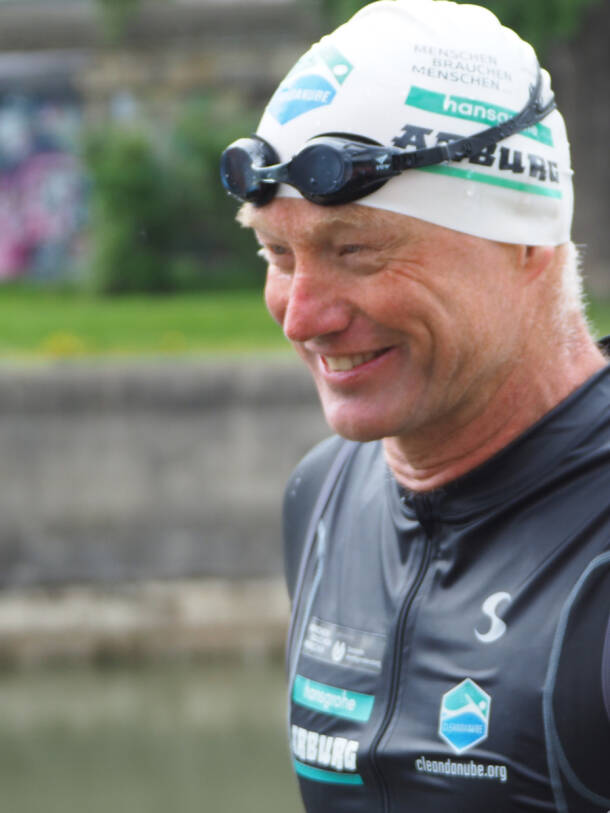
What are the stages of the project?
A.F.: In spring 2022, I will swim the entire Danube over a distance of about 2,700 kilometers from the Black Forest to the Black Sea. The association for wildlife protection (AWP) has developed various project parts.
In the research part we take daily water samples, which after their scientific analysis provide a comprehensive overview of the pollution level of the entire Danube.
Furthermore, there is a modularized educational offer, which is intended to increase the competency to act on behalf of plastic prevention along the project route. The educational program is primarily aimed at young people between the ages of 14 and 25 and will be implemented locally in a workshop format – in cooperation with local initiatives and organizations.
At the end of the project, a sustainable documentation will follow: a project film about cleandanube.
Who are the key players in the project?
A.F.: My team and I are supported by the non-profit AWP, which implements species and nature conservation projects worldwide. It initiates environmental education projects and has built an extensive network of NGOs in the Danube region.
Furtwangen University, where I teach, is a co-organizer of the project and supports it with the mobile lab, with public relations and with PhD students and undergraduates who incorporate the results into their thesis work. (Prof. Fath names many other actors).
Swimming from the Black Forest to the Black Sea
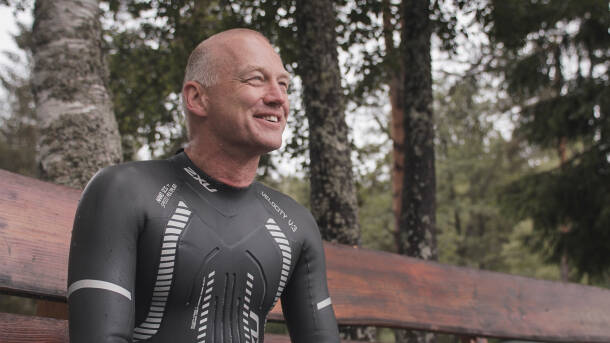
What else is happening locally?
A.F.: The project and the attention it brings are a platform to develop and implement a colorful program with as many local partners as possible; for example, joint swimming events, cleanups on the shore, receptions with lectures and music, nature walks or kayak trips. And, of course, participation in our educational program.
How do you mentally deal with being alone in the water for up to eight hours every day – for two months?
A.F.: It is a unique experience of nature, a journey with incomparable perspective. The certainty that no pull of the arm is in vain, but steadily brings me closer to the goal, can be euphoric. In the water there is no limit – certainly not for thoughts and ideas. I walk them through the water until I write them down in my diary in the evening, exhausted. Besides, I meet people with a positive attitude at every destination, otherwise they wouldn't be waiting for me there.
The interview was conducted by AWP. We thank them for their kind permission to use excerpts from it.



